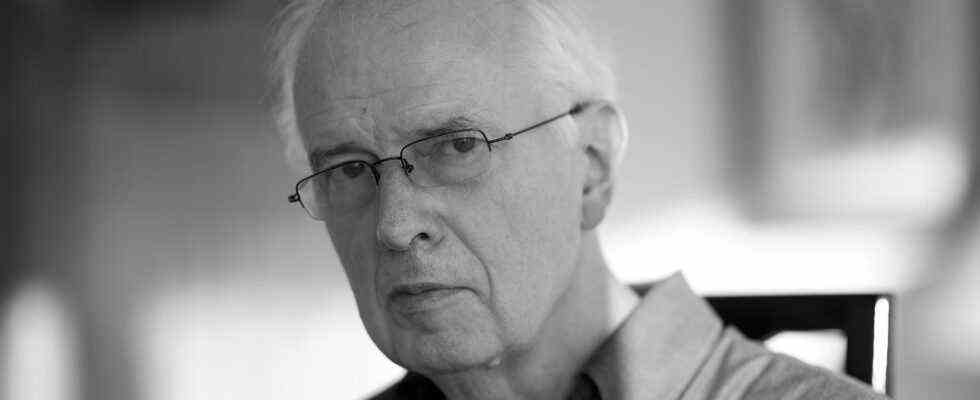Status: 10/22/2021 12:00 p.m.
The composer Udo Zimmermann died at the age of 78. Music is “his elixir of life,” he once said. Due to an illness, however, in the end he could no longer create it himself, only hear it.
With works like “The White Rose” he set political signals. He was one of the leading contemporary composers in Europe. Now Udo Zimmermann died last night, as his wife Saskia announced. He was 78 years old. Music is “his elixir of life,” he once said. Due to an illness, however, in the end he could no longer compose it himself, only hear it.
“The White Rose”, his opera about the Scholl siblings, was a huge success – in East and West. It is one of the most frequently performed works of contemporary music.
Zimmermann always saw himself as a theater person who also composes. “Theater and music are close to my heart and belong together, the theater is amalgamated by the music and the music amalgamated by the drama,” he once mused. His musical heart always beat for the experimental, as a committed cultural politician he saw the dependence of culture on the economy with great concern. As artistic director, he fought for adequate equipment for culture – in GDR times as well as in unified Germany.
Founder of the “New Music Studio”
Zimmermann was born on October 6, 1943 in Dresden, sang as a crucian in the famous Dresden Kreuzchor. He studied composition and singing in his hometown, and later worked as an assistant to the Berlin master director Walter Felsenstein.
In 1970 he became dramaturge at the Dresden State Opera, in 1974 he founded the “Studio Neue Musik”, from which in 1986 the center for contemporary music emerged. From 1990 to 2001 Zimmermann was the artistic director of the Leipzig Opera, which under him was the premiere theater and received several awards.
From 1997 to 2011 the artist was also responsible for the “musica viva” series at Bayerischer Rundfunk, where he premiered numerous contemporary works. He composed five operas, vocal symphonies and works for chamber ensembles, and conducted well-known orchestras such as the Vienna Philharmonic, the Vienna Symphony Orchestra and the Dresden State Orchestra.
Zimmermann suffered from a rare disease
When he reached retirement age, the life of the Dresden native had changed again. He gave up all offices, built a new modern house on the Elbe slope, married for the third time – and had time again for music.
However, the artist had suffered from a rare neurodegenerative disease for years. Motor restrictions slowed his thirst for action more and more – after all, he also had to give up composing. The artist, who was always passionate about creating music, could only hear it in the end and could hardly speak at the end. He has not left the house for years, said his wife. “But he still heard music.”

